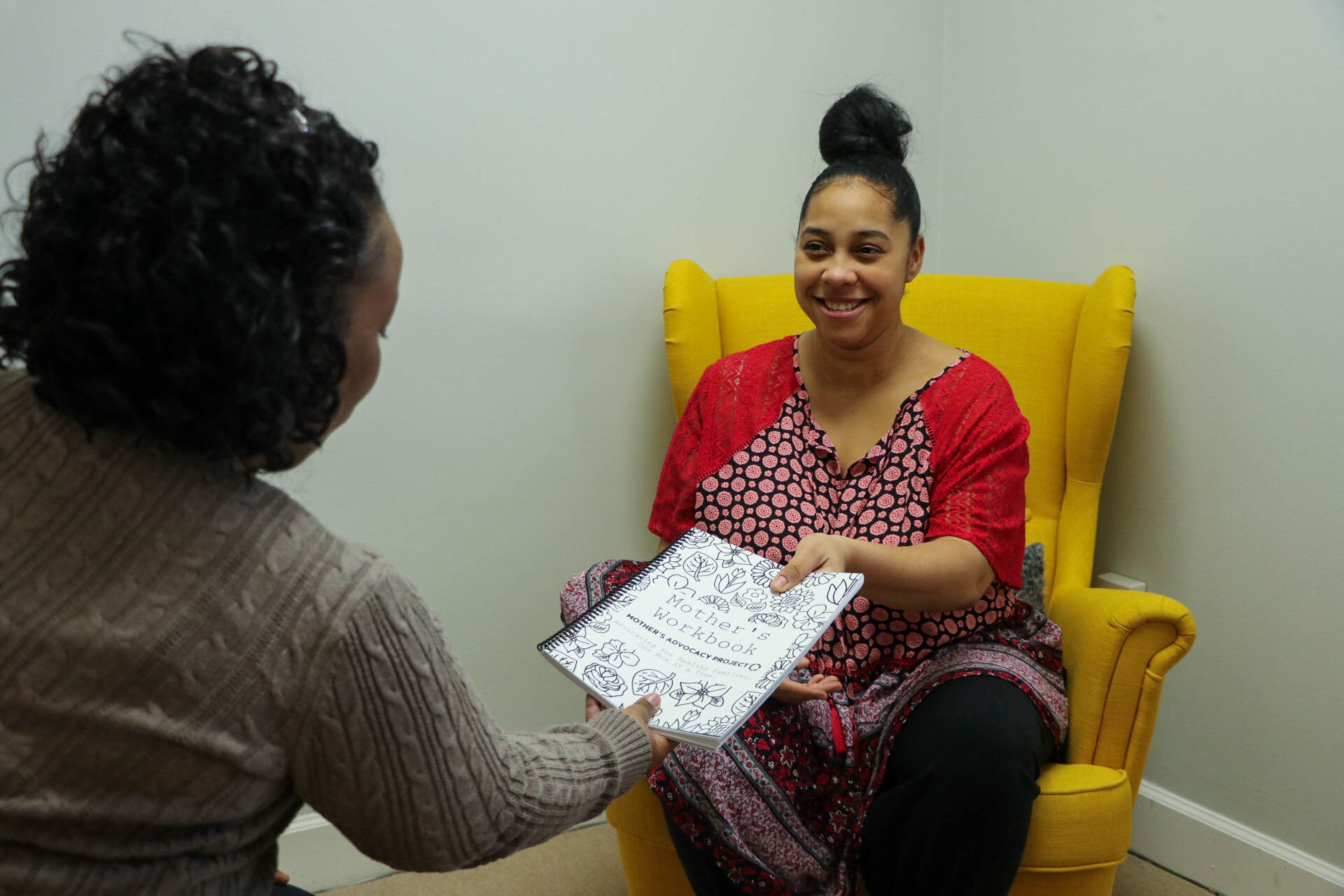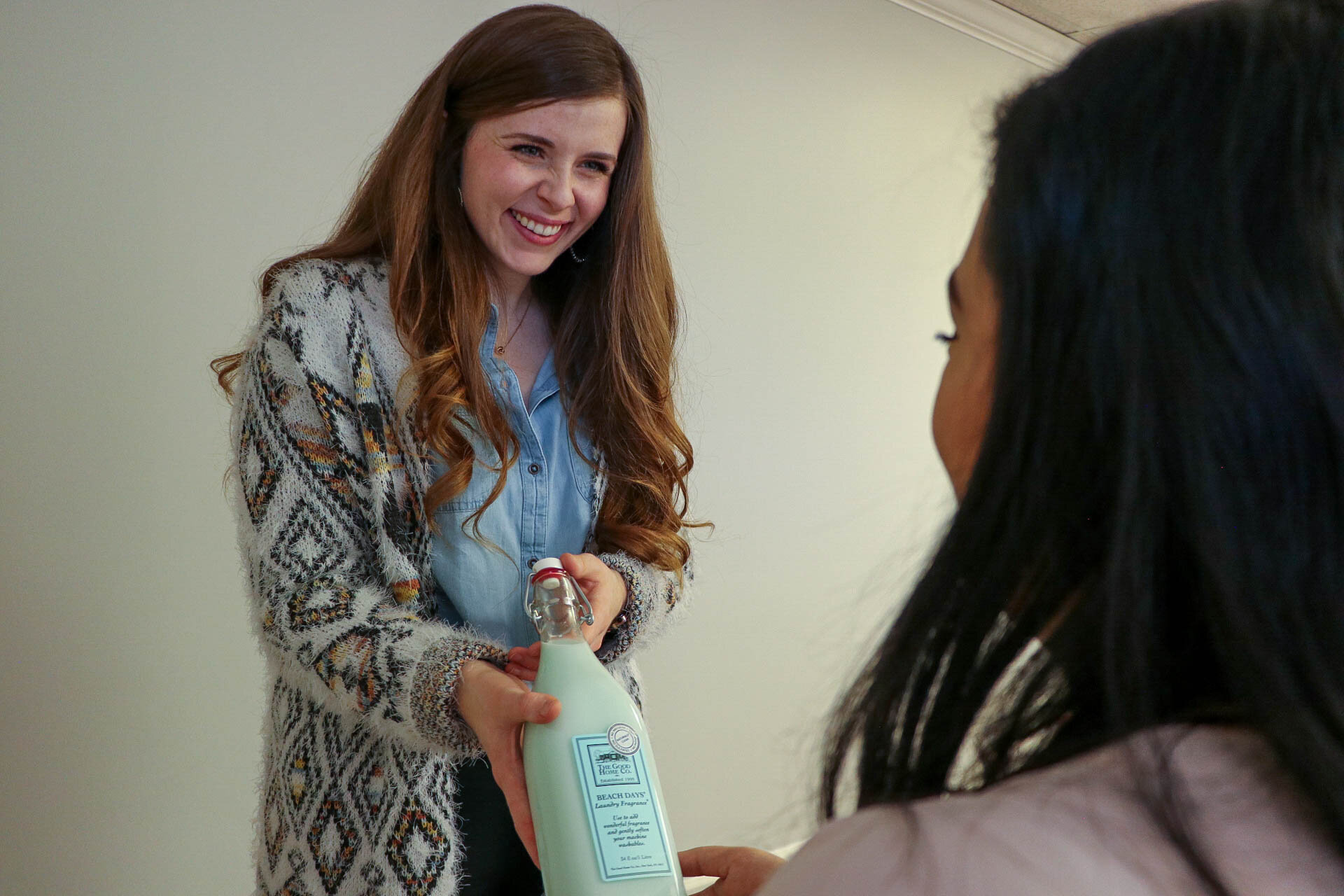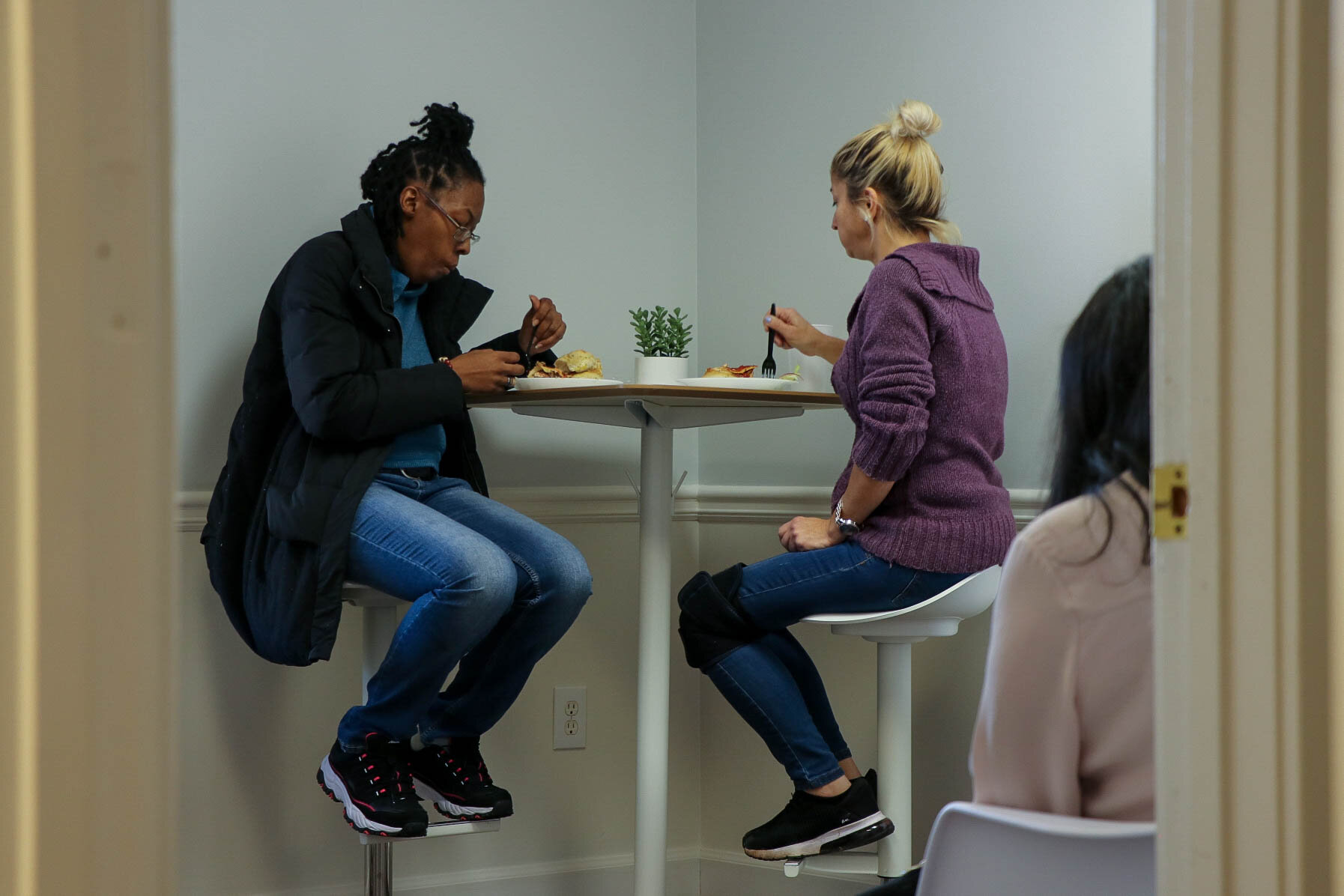
Blog
A Conversation with The Foster Care Alliance
J.Rich Atlanta believes in elevating influential voices in our community. Today, we hear from Chelsea Sabo, Founder and Executive Director of The Foster Care Alliance!
Q&A with Chelsea
1) What exactly does Foster Care Alliance do?
The Foster Care Alliance (FCA) is a 501(c)3, non-profit organization incorporated in the state of Georgia. The Foster Care Alliance exists to advocate for healthy families, one mom at a time. We do this through trauma-informed services provided during a 1 year program called The Mother’s Advocacy Project (MAP). MAP, developed and implemented by FCA, is a mother/child trauma-focused reunification and maltreatment prevention program for families in the foster care system. FCA is currently serving families from Cobb, Dekalb, Fulton, and Gwinnett counties.
“Yes, there are policies that need to change, and strategies that are antiquated, but really, the whole perception of foster care and view of birth families is where real change can actually happen.”
2) Where did the idea for the Foster Care Alliance come from?
The idea for Foster Care Alliance came from my own experience as a foster parent. I have to admit that I got into foster care, thinking that I would help a child in need and that the best thing was to get the child far away from the family that hurt them. But, in the process, I learned a lot about the broken pieces of foster care… and my own heart as a foster parent was one of the broken pieces. Yes, there are policies that need to change, and strategies that are antiquated, but really, the whole perception of foster care and view of birth families is where real change can actually happen. I of course fell in love with the child placed in my care, who is now my son, by his family’s choice. But, I also grew to a great understanding and compassion for the journey his birth mother had walked the 20+ years of her life and the trauma that had brought her to the place she was the day her children were removed. I wanted to believe that no person was too far gone to experience real true healing and wholeness. So I began to look into trauma recovery as a strategy for breaking inter generational cycles of maltreatment and trauma.
Photo Credit: Melanie Hughes
“I knew I had to move from behind my screen and do something about it. I remember telling God, “OK. I am scared and I might fail, but I want to fix foster care or die trying.””
3) When did you know you had to start Foster Care Alliance?
Honestly, when I realized that I could complain/post on Facebook and Instagram and to friends, and it would do nothing more than selfishly soothe my soul temporarily. No matter how much I talked about it, my experiences stayed the same day after day, court date after court date. So, I knew I had to move from behind my screen and do something about it. I remember telling God, “OK. I am scared and I might fail, but I want to fix foster care or die trying.”
Photo Credit: Miranda Strong
4) What is the lasting impact that you hope to have?
I hope that our organization and those that we serve will always be described by the values that we hold: family, dignity, and generosity. I want to see birth families receive help first, and avoid children needing to come into foster care if at all possible. It surprises most people that 84% of kids in Georgia enter foster care for solvable problems. So, what if we solved them first? That means we could have significantly less children in foster care. I want to transform communities, where government agencies are a last resort.
“It surprises most people that 84% of kids in Georgia enter foster care for solvable problems.”
Photo Credit: Miranda Strong
5) What is most rewarding about the work you do?
Success of our families. In Phase 3 of our program, which is the last phase before graduation, our moms are required to serve 8hrs at Foster Care Alliance in some way. Watching them babysit, in our childcare room, the children of moms who have just started our program and caring for families in the spot they were months ago, or watching them serve DFCS case managers at an ice cream social appreciation, where the tables have turned and they are no longer afraid of DFCS, but scooping ice cream and thanking them. These are the times I start to see such amazing transformation. We are going through some rebranding and having some of our alumni moms speaking into it and helping us design the future of the organization is more than a dream. I am building this with those who have been healed by it. It is an honor to serve alongside them!
6) What excites you most about the future/potential of Atlanta?
I have always believed that Atlanta is a special city, perfectly placed with resources and southern hospitality. We have a ways to go, but the community of those wanting to see change and thriving is here. I believe that Atlanta can be an example, a lighthouse of sorts, for how we transform communities by caring for the heart and soul of people and not just the resource. It’s coming and we are excited to be part of that.
7) What are your hopes for the women that navigate the Foster Care Alliance program?
I hope that they find true healing and that they can be the catalyst for breaking cycles of poverty, abuse, and trauma in their families. I hope they can lead their children to a life of thriving and that their children can have the privilege of childhood, like their mothers never were afforded. Strong moms, raise strong children! Right?
“I hope that they find true healing and that they can be the catalyst for breaking cycles of poverty, abuse, and trauma in their families.”
Photo Credit: Miranda Strong
8) What are you most proud of?
The resilient brave moms who walk through our doors every day. My amazing staff who dedicate themselves to the thriving of these families. Our generous donors who have seen us through valleys and mountains and stuck with us joyfully. Staff, donors, and our moms are a team in healing each family… and without one, we would never see success. So I am proud of my “team.”
9) What is the spirit of the people you have to pleasure to educate and work with?
I believe that the spirit walking in is often different than who is walking out. Most mothers come in quite broken, but we see and call out their resilience and bravery, even when they don’t see it in themselves. When they walk out, we see this resilience and bravery shining bright and changing their families.
“Most mothers come in quite broken, but we see and call out their resilience and bravery, even when they don’t see it in themselves. When they walk out, we see this resilience and bravery shining bright and changing their families.”
Photo Credit: Melanie Hughes
10) In a perfect world what does the future look like for Foster Care Alliance?
In the perfect world, we would have more programs focused on all different types of caregivers! We have the “Mothers Advocacy Project” and are currently piloting the “Child Advocacy Project,” which is going well and we plan to roll out for all our families starting January 2021. We hope to work with Fathers and Kinship Caregivers as well. We want to be working with families before children are removed and being a part of healing families before children experience the trauma of removal and foster care, for the problems that we can solve. Prevention is always better, but it takes time to turn the strategy of a government agency. However, we have wonderful people in state leadership for DFCS and they are open and excited and dreaming with us about this. So, perfect world or not, it will happen… just a matter of time! :)
“We want to be working with families before children are removed and being a part of healing families before children experience the trauma of removal and foster care, for the problems that we can solve.”
10) How can people help?
There are so many ways people can help! We need specialists to do seminars on nutrition and budgeting and tutoring for children. We need people to step up and meet client needs for rental assistance, clothing, groceries, new tires, doctors bills. We need people to sponsor families for Mother’s Day and Thanksgiving and Christmas. We need people to sponsor families to go through our program, because it is free to our moms, but not free to us. We need people to volunteer for childcare or transportation services or keeping inventory in our resource closet. The list can go on and on. But, mostly, we need people to help us spread the word that Birth Moms are not criminals or heartless abusers, but real people who hold deep pain from their past with deep love for their children in their one heart!
Continue learning more about The Foster Care Alliance by visiting their website fostercarealliance.org
"Four pillars necessary to produce a thriving community" by: Callie Murray
J.Rich Atlanta believes in elevating influential voices in our community. Today, we hear from Callie Murray, the "Community Manager" of Plywood People; a local non-profit that leads a community of start ups doing good. Enjoy!
For a little over a year now, I have worked as the Community Manager for Plywood People, a non-profit leading a community of start-ups doing good through programming, events and connections. Each day, I witness a thriving community of thought leaders, working together to learn and grow and ultimately achieve more of the missions that drive them. I am consistently encouraged by the growth - in both the people and the organizations - that results.
Last year, I also took on a new role in the hopes of growing personal community, and I became the PTA President at my children’s elementary school. Spoiler alert: This move has not produced the results I was hoping for.
I’ve been wrestling through the idea of community all year, and I’ve landed on four major pillars that I believe are necessary to produce one that is thriving and growing.
Four pillars to produce a thriving community
1. Belonging. Does each person feel like a member? Thanks to good ole PTA, I have learned that a title or a due doesn’t quite complete the transaction; there also must be that feeling of belonging. Do you have a voice? Do people know your name?
2. Shared mission/vision. Are you working together for a common goal? Perhaps it is a personal goal (ie at Plywood, each person is trying to grow their own organization), but it is a personal goal held by all. Do you share the same motivation?
3. Increased capacity. A thriving community pools resources - intellectual, financial, and social capital - to increase the overall capacity of what could be accomplished. As Plywood Advisor Jack Alexander explains, an individual has potential, limited and finite. However, a group of people can network together to form capacity, broad and limitless.
4. Low barriers. I think I could also phrase this, “It’s easy.” Is there an easy place - physical or online - to connect? Is there an expected tempo for connecting? Is it apparent how you become “in” the community? With the PTA, I started the year sending emails, to crickets. I then learned that our school’s population, vastly low income, didn’t have access to personal computers, and I learned to text. Emails were a barrier to community; texts made it easy.
“an individual has potential, limited and finite. However, a group of people can network together to form capacity, broad and limitless.”
If you are looking for a community around your work and mission, I invite you to look into Plywood People and to contact me (callie@plywoodpeople.com) for more information. As we say here, we believe that better is possible, and we know that community is vital to making that true.
Callie Murray
Recent Posts
Blog Archive
- November 2020
- October 2020
- September 2020
- February 2020
- January 2020
- October 2018
- August 2018
- July 2018
- May 2018
- April 2018
- November 2017
- October 2017
- September 2017
- August 2017
- July 2017
- June 2017
- May 2017
- April 2017
- March 2017
- February 2017
- January 2017
- December 2016
- November 2016
- October 2016
- September 2016
- August 2016
- July 2016
- June 2016
- May 2016
- April 2016
- March 2016
- February 2016
- January 2016
- December 2015











